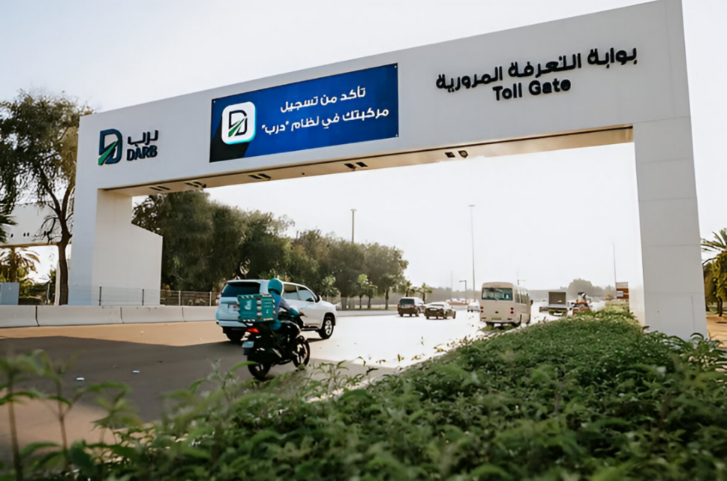Abu Dhabi to Revise Darb Toll Gate Timings and Fee Structure Effective September 1
In a significant update to its transport regulations, the Integrated Transport Centre (ITC) of Abu Dhabi has announced a series of changes to the Darb toll system that are set to take effect on Monday, September 1. These alterations, which encompass modified operational hours as well as a revision of the toll fee structure, aim to enhance traffic efficiency during peak travel times, thereby addressing ongoing congestion issues in the capital.
The new operational hours will see a shift in the evening chargeable periods for toll usage. Previously set from 5:00 PM to 7:00 PM, the chargeable hours will now commence earlier, from 3:00 PM and running until 7:00 PM, while the morning toll hours will remain unchanged. Notably, the revised timings will apply to weekdays, with Sundays and official public holidays continuing to feature a complete waiver of toll fees. This strategic adjustment is expected to alleviate congestion during the busy after-work hours, thereby improving overall traffic flow.
One of the most consequential shifts in the new toll system is the elimination of daily and monthly fee caps. Under the previous system, motorists were subject to a maximum fee of Dh16 per day and Dh200 per month for their first vehicle, with reduced rates applying for subsequent vehicles. Beginning in September, however, all motorists will incur a Dh4 charge for each crossing of a toll gate, with no upper limit. This move is indicative of a broader strategy to generate more revenue from the tolls while simultaneously attempting to manage road congestion more efficiently.
While the removal of these caps raises questions about potential impacts on drivers’ expenses, the ITC has reaffirmed its commitment to providing exemptions for certain vulnerable groups. People of Determination, senior citizens, retirees, and low-income families will continue to enjoy toll waivers under the revised scheme. This nuanced approach aims to strike a balance between generating necessary funding for transportation infrastructure while ensuring specific demographics are not disproportionately burdened by additional costs.
These changes come within the context of Abu Dhabi’s ongoing efforts to modernize and enhance its public transportation framework. The Darb toll system, which was launched in 2021, is an integral component of the city’s traffic management and urban planning initiatives. It operates through eight strategically placed toll gates situated on the primary bridges connecting various parts of Abu Dhabi city. The installation of these tolls has aimed not only to generate revenue but also to incentivize the use of alternative transportation methods and reduce vehicle density on the roads.
The ITC has indicated that the rationale behind these changes is fundamentally rooted in the goal of enhancing commuter experiences and mitigating traffic snarls that have become common in the face of increasing vehicle utilization. By revising both the timing of toll charges and the fee structure itself, the government is responding to the evolving needs of a growing urban population that relies heavily on personal and public transportation.
As these modifications unfold, it will be crucial to observe the resulting effects on traffic patterns and commuter behaviors across the capital. Stakeholders, including transport experts and urban planners, will no doubt be monitoring these developments closely to assess both the short-term impacts on congestion as well as long-term implications for the sustainability of Abu Dhabi’s transport infrastructure.
In summary, the ITC’s decision to adjust the Darb toll system marks a significant shift in Abu Dhabi’s transportation landscape. By revising operational hours, abolishing fee caps, and retaining exemptions for vulnerable groups, the initiative aims to refine traffic management within the capital city while adapting to the ever-evolving demands of its populace. As Abu Dhabi continues to invest in its transportation infrastructure, such changes highlight the necessity of balancing economic viability with social equity—a challenge that many modern cities confront in their growth trajectories.
—
Tags: #UAE #EconomyNews #RealEstateNews #BusinessNews

